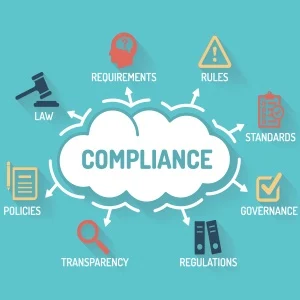Robocall Law
Robocalls have become a significant part of modern communication, especially for businesses that rely on automated systems to reach out to customers. However, with the increase in the volume of robocalls, there has been a growing concern about the legality and ethical implications of these automated calls. This has led to the development of comprehensive robocall laws aimed at regulating their use, protecting consumers, and ensuring that businesses adhere to ethical communication practices.
In this article, we’ll explore the intricacies of robocall laws in the United States, including what makes a robocall illegal, the penalties for non-compliance, and how businesses can navigate these regulations to use robocalls effectively and legally.

Understanding Robocall Law
Robocall law refers to the set of federal and state regulations that govern the use of automated calls, also known as robocalls. These laws are designed to protect consumers from unwanted, intrusive, and potentially fraudulent calls. The key federal laws that regulate robocalls in the United States include the Telephone Consumer Protection Act (TCPA) and the Federal Trade Commission’s (FTC) Telemarketing Sales Rule (TSR).
The Telephone Consumer Protection Act (TCPA)
The Telephone Consumer Protection Act (TCPA), enacted in 1991, is the cornerstone of robocall regulation in the United States. The TCPA imposes strict guidelines on the use of automated dialing systems, prerecorded voice messages, and SMS text messages. The primary goal of the TCPA is to protect consumers’ privacy and prevent unwanted and intrusive communications.
Under the TCPA, businesses must obtain prior express consent from consumers before making robocalls to their cell phones. This consent must be clear and unambiguous, and businesses are required to maintain records of this consent. The TCPA also provides consumers with the right to opt-out of receiving robocalls at any time, and businesses must honor these opt-out requests promptly.
Violations of the TCPA can result in significant penalties, including fines of up to $1,500 per violation. In some cases, consumers can also file lawsuits against businesses for TCPA violations, leading to costly legal battles.


The Federal Trade Commission’s Telemarketing Sales Rule (TSR)
The Telemarketing Sales Rule (TSR), enforced by the Federal Trade Commission (FTC), is another critical regulation that governs the use of robocalls. The TSR sets out specific requirements for telemarketing calls, including robocalls, and aims to prevent deceptive and abusive telemarketing practices.
One of the most important provisions of the TSR is the requirement that telemarketers must obtain written consent from consumers before making robocalls. This consent must be specific and cannot be obtained through deceptive or misleading means. Additionally, the TSR prohibits robocalls from being made to consumers on the National Do Not Call Registry unless the consumer has provided prior written consent.
Violations of the TSR can result in enforcement actions by the FTC, including civil penalties, injunctions, and consumer redress. Businesses found to be in violation of the TSR may also face lawsuits from consumers and state attorneys general.
Are Robocalls Illegal?
A common question many businesses ask is, "Are robocalls illegal?" The answer is both yes and no. Robocalls are not inherently illegal, but their use is heavily regulated. Whether a robocall is legal or illegal depends on several factors, including the purpose of the call, the type of consent obtained, and the compliance with relevant laws and regulations.

Legal Robocalls
Robocalls are legal when they comply with the TCPA, TSR, and other applicable laws. For example, robocalls are generally permitted if they are:
- Made with the prior express consent of the consumer.
- Made for non-commercial purposes, such as political campaigns, surveys, or charity fundraising.
- Made to inform consumers about critical information, such as school closures, health alerts, or utility outages.
In these cases, businesses must still adhere to certain requirements, such as providing an opt-out mechanism and ensuring that the call does not violate the consumer’s rights under the TCPA.
Illegal Robocalls
Robocalls become illegal when they violate the TCPA, TSR, or other relevant regulations. Some examples of illegal robocalls include:
- Robocalls made without prior express consent: If a business makes robocalls to a consumer’s cell phone without obtaining prior express consent, the call is illegal under the TCPA.
- Robocalls made to consumers on the Do Not Call Registry: It is illegal to make robocalls to consumers who have registered their phone numbers on the National Do Not Call Registry unless the consumer has provided prior written consent.
- Deceptive or fraudulent robocalls: Robocalls that use deceptive tactics, such as spoofing caller ID information or making false claims, are illegal and subject to severe penalties.
Businesses that engage in illegal robocalling practices can face significant legal consequences, including fines, lawsuits, and damage to their reputation.
Penalties for Non-Compliance with Robocall Laws
The penalties for non-compliance with robocall laws can be severe. Under the TCPA, businesses can be fined up to $1,500 for each violation. This means that a single illegal robocall could result in a substantial financial penalty, especially if multiple violations occur. Additionally, consumers who receive illegal robocalls can file lawsuits against the offending business, seeking damages of up to $1,500 per call.
The FTC can also take enforcement action against businesses that violate the TSR, which can result in civil penalties, injunctions, and other legal remedies. State attorneys general can also bring legal actions against businesses that violate robocall laws, leading to additional penalties and legal costs.
In recent years, there has been an increase in enforcement actions against businesses that engage in illegal robocalling practices. These actions have resulted in significant fines and settlements, highlighting the importance of complying with robocall laws.

More than 20,000 call center agents use our platform, everyday..
With over 34 years of team experience at CallCenterTech, 24x7 availability and round the clock on-demand support, we have earned and nurtured over 600 clients all across the globe, some being call centre giants with over 1000 agents dialing on a single infrastructure. We have exceeded the 20,000 mark on the number of agents dialing with our cloud call centre solutions and contact centre platforms. Our dedicated support team focuses on responding to support requests almost immediately causing almost zero downtimes to our clients.
How Businesses Can Comply with Robocall Laws
Given the strict regulations surrounding robocalls, it is essential for businesses to take steps to ensure compliance. Here are some best practices for businesses to follow:
- Obtain Clear Consent: Before making robocalls, businesses must obtain clear and unambiguous consent from consumers. This consent should be documented and stored securely for future reference.
- Provide Opt-Out Mechanisms: Every robocall should include a clear and easy-to-use opt-out mechanism, allowing consumers to stop receiving further calls. Businesses must honor opt-out requests promptly.
- Avoid Deceptive Practices: Robocalls should never use deceptive tactics, such as spoofing caller ID information or making false claims. Transparency and honesty are critical to maintaining consumer trust.
- Comply with the Do Not Call Registry: Before making robocalls, businesses should check the National Do Not Call Registry and ensure they are not contacting consumers who have registered their phone numbers. If a consumer has provided prior written consent, it is important to document this consent.
- Monitor Changes in Regulations: Robocall laws are subject to change, and it is important for businesses to stay informed about any updates or amendments. Regularly reviewing and updating compliance policies can help prevent legal issues.
- Implement Call Monitoring and Analytics: Using advanced call monitoring and analytics tools can help businesses ensure that their robocalls comply with legal requirements. These tools can track call performance, record consent, and identify potential compliance issues.
The Role of Technology in Robocall Compliance
Technology plays a crucial role in helping businesses comply with robocall laws. Modern robocall software and VoIP systems are equipped with features that make it easier for businesses to adhere to legal requirements. Some of these features include:
- Automated Consent Tracking: Many robocall systems allow businesses to automatically track and store consumer consent, making it easier to demonstrate compliance in the event of an audit or legal challenge.
- Real-Time Call Monitoring: Real-time monitoring tools enable businesses to oversee their robocall campaigns and ensure that calls are being conducted in accordance with legal standards.
- Caller ID Authentication: Advanced robocall systems can authenticate caller ID information, reducing the risk of illegal spoofing and ensuring that consumers know who is calling.
- Opt-Out Management: Automated opt-out management tools help businesses process and honor opt-out requests quickly, reducing the risk of non-compliance.

Recent Developments in Robocall Law
The legal landscape surrounding robocalls is continually evolving. In recent years, there have been significant developments aimed at strengthening consumer protection and reducing the prevalence of illegal robocalls.
At CallCenterTech.net, we understand the complexities of robocall laws and the importance of staying compliant.
Our advanced robo dialer software is designed to help businesses navigate these regulations while optimizing their outreach efforts. Whether you’re looking to implement a new robocall system or ensure that your existing setup is compliant, we’re here to help.
The TRACED Act
One of the most notable recent developments is the Telephone Robocall Abuse Criminal Enforcement and Deterrence (TRACED) Act, which was signed into law in 2019. The TRACED Act enhances the FCC’s ability to enforce robocall laws and increases penalties for violations. It also mandates that telecom providers implement caller ID authentication technologies to combat spoofing.
Under the TRACED Act, the FCC has greater authority to take action against illegal robocalls, including the ability to levy fines of up to $10,000 per violation. The Act also extends the statute of limitations for pursuing robocall violations, giving regulators more time to investigate and take action against offenders.


STIR/SHAKEN Framework
The STIR/SHAKEN (Secure Telephone Identity Revisited/Signature-based Handling of Asserted information using toKENs) framework is another significant development in robocall regulation. This technology standard aims to combat caller ID spoofing by verifying the authenticity of calls. Under the STIR/SHAKEN framework, telecom providers are required to implement caller ID authentication technologies, making it more difficult for fraudsters to spoof phone numbers.
The FCC has mandated that all major telecom providers in the United States implement the STIR/SHAKEN framework by June 30, 2021. This requirement is expected to reduce the number of illegal robocalls and improve the accuracy of caller ID information for consumers.
FAQs about Robocall Law
Q. What is the Telephone Consumer Protection Act (TCPA)?
The TCPA is a federal law that regulates the use of automated dialing systems, prerecorded voice messages, and SMS text messages. It requires businesses to obtain prior express consent from consumers before making robocalls and provides consumers with the right to opt-out of receiving robocalls.
Q. Are robocalls illegal?
Robocalls are not inherently illegal, but their use is heavily regulated. Robocalls become illegal if they violate the TCPA, TSR, or other relevant regulations, such as making calls without consent or to numbers on the Do Not Call Registry.
Q. What are the penalties for violating robocall laws?
Penalties for violating robocall laws can include fines of up to $1,500 per violation under the TCPA, as well as civil penalties, injunctions, and consumer lawsuits under the TSR.
Q. What is the TRACED Act?
The TRACED Act is a federal law that enhances the FCC’s ability to enforce robocall laws, increases penalties for violations, and mandates caller ID authentication technologies to combat spoofing.
Q. How can businesses ensure compliance with robocall laws?
Businesses can ensure compliance by obtaining clear consent from consumers, providing opt-out mechanisms, avoiding deceptive practices, checking the Do Not Call Registry, and staying informed about changes in regulations.
Conclusion
Let us assist you in navigating the legal landscape of robocalls and enhancing your business communication with our state-of-the-art solutions.




